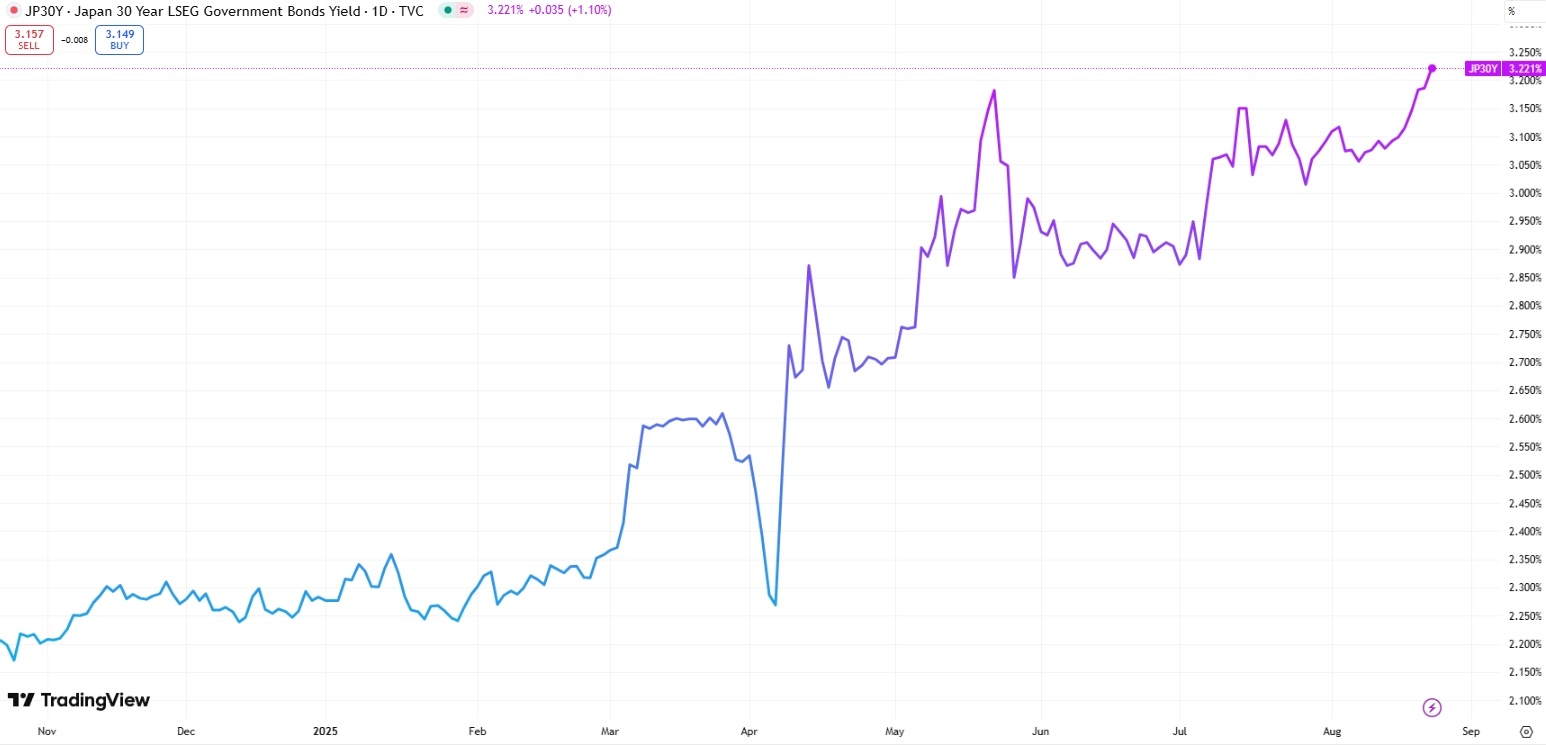Japan’s Long-Term Bond Yields Surge in Panic-Like Move — Sticky Inflation, Fiscal Fears, and Overseas Buyers Pull Back
TradingKey - After a weak auction of 20-year Japanese government bonds (JGBs) on Tuesday, August 19, concerns over a potential resurgence of the “Japan bond market storm” have intensified.
On Friday, August 22, Japan’s 30-year bond yield surged to 3.22%, surpassing the previous record high of 3.20% set in July. This move was driven by persistent inflation, growing fiscal concerns, and a notable withdrawal of demand from key foreign investors.

Japan 30-Year Government Bond Yield, Source: TradingView
The nationwide core CPI (excluding fresh food) rose 3.1% year-on-year in July, slightly above the 3.0% consensus, though down from 3.3% in June. The core-core CPI (excluding fresh food and energy), which the Bank of Japan closely monitors, remained flat month-on-month and rose 3.4% YoY, in line with expectations.
Although inflation showed a slight moderation in July, analysts view this as temporary. The fact that both core measures remain firmly in the 3% to 4% range indicates that price pressures remain stubborn.
Combined with stronger-than-expected GDP growth in Q2 and the recent U.S.-Japan trade agreement, these factors continue to support expectations of further rate hikes by the Bank of Japan.
Additionally, concerns over rising fiscal deficits and a pullback in demand from overseas investors — the primary buyers of Japan’s ultra-long bonds — have contributed to the rise in bond yields.
After the 20-year JGB auction, MUFG Morgan Stanley analysts said the soft auction result was largely influenced by Japan’s current political landscape, with risks of fiscal expansion adding upward pressure on JGB yields.
The 20-year JGB yield rose to 2.65% immediately after the auction — the highest since November 1999 — and has since climbed to 2.67% as of this writing.
SMBC Nikko Securities strategists noted that overseas investors were the dominant demand force in the ultra-long bond market in the first half of 2025, and their sharp decline in net purchases has raised concerns about future instability in the long-end yield curve.
Data shows that foreign investors’ net purchases of JGBs with maturities over 10 years plummeted to ¥480 billion in July, about one-third of June’s level.
Société Générale reported on Wednesday that overseas investors net sold ¥1.4 trillion worth of 10-year JGBs around the time of Japan’s recent election — the largest net sell-off in two years.
Even more concerning, as September approaches and companies prepare for quarterly earnings reports, ultra-long bonds — particularly those issued before the BOJ’s tightening cycle, with lower fixed coupons — may face further selling pressure. Investors are increasingly favoring new bonds offering yields more than double the 1% fixed coupons of older issues.
At the same time, some Japanese bond buyers are beginning to see opportunity in higher yields.
Asahi Mutual Life Insurance said that if interest rates rise further in the second half of the fiscal year, it will consider shifting funds from foreign bonds to yen-denominated Japanese government bonds.



